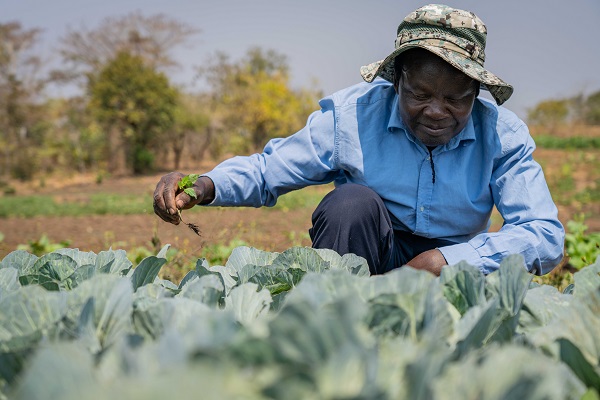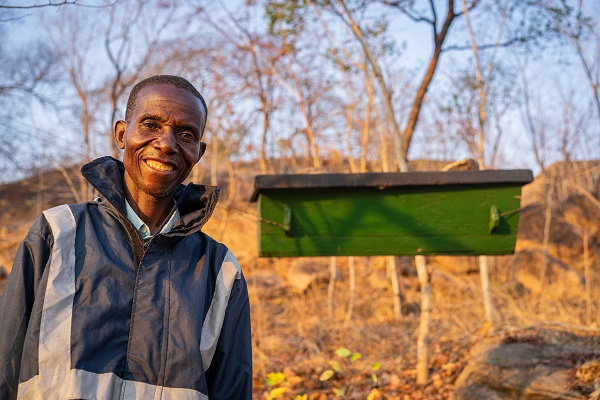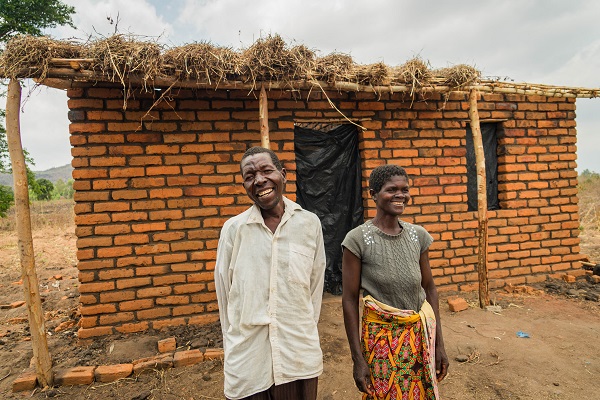PROSPER
Objectives
PROSPER (Promoting Sustainable Partnerships for Empowered Resilience) aims to build the resilience of households and communities, strengthen shock sensitive social protection, expand climate smart agriculture, reduce exposure to hazards and risks, achieve food and nutrition security and diversify and improve income generation and economic opportunities.
PROSPER aims to be a collective and influential voice for innovation, evidence and impact, by providing a platform for enhanced engagement on policy and programme implementation.
This vision will be achieved through the following four objectives:
• Intensifying and diversifying agricultural production and improved nutrition for targeted vulnerable communities.
• Enhancing inclusive access to the productive resources necessary to develop increased, secure and predictable incomes.
• Reducing vulnerability and exposure of households and communities to risk.
• Increasing capacity of national, sub-national and non-state actors to plan, coordinate and monitor resilience programming, including shock-responsive social protection.

Activities
- Organising agri-input events with private sector and district authorities to promote access to high quality agri-inputs (certified, improved and drought tolerant seeds, inoculants, key agro-chemicals).
- Promoting climate smart agriculture and good agricultural practice.
- Strengthening agricultural extension services.
- Disseminating agricultural and market information.
- Market systems development by promoting private sector engagement and demonstrating pro-poor business initiatives.
- Promoting access to financial services for rural poor households, including credit and loans, insurance products and entrepreneurship training.
- Enabling women and men to engage in sustainable land use and watershed management, while addressing resource, social and gender constraints.
- Supporting community-led solutions through participatory planning processes.
- Supporting community-managed disaster risk reduction through local contingency plans, strengthening community disaster management. committees, building flood mitigation engineering works linked to watershed management, and building multipurpose evacuation centers in disaster-prone areas.
- Supporting the national Department of Disaster Management to reactivate the district disaster risk management co-ordination structures including re-activation of technical sub-committees, such as the early warning sub-committees (at district level) and building a Disaster Risk Management Information System.
- Supporting shock-sensitive social protection to address shocks and stresses, including the multi-dimensional effects of the lean season on households and communities.
- Promoting enhanced nutrition through communications for behavior change, running ‘Cluster Care Groups’, radio programmes and other methods.

Expected results will include:
- Increased uptake of climate-smart agriculture approaches and good agricultural practices, contributing to increased yields.
- Improved provision of public and private agriculture extension services, considering smallholder farmers requirements and expectations.
- Households have acquired knowledge actively through learning-by-doing approaches combined relevant information to inform on-farm production.
- Improved post-harvest handling techniques to minimise crop losses.
- Increased ability of smallholder farmers to aggregate produce and negotiate with agro-dealers, purchasers and processors.
- Increased access to financial services including savings and credit, coupled with business-focused training and social behaviour change messages on nutrition, family planning.
PROSPER Markets
PROSPER Markets is a component of the project, which aims at systemic change by building the capacity and performance of private sector actors in Malawi. We believe that by working with businesses to help to improve the quality and quantity of products, services, and that rural Malawians can access and use. This will help to increase incomes, lower poverty, and improve the resiliency of Malawi's rural communities.
We work to support businesses by:
- Introducing new ideas - providing new and innovative approaches for businesses to increase their market share.
- Capacity building - providing bespoke mentoring on planning, marketing, supply chain, and more.
- Building local relationships - linking suppliers and buyers as a stepping stone to learning or a more substantive change.
- Buying down risk - cost-sharing with businesses looking to establish new ventures and markets.
For more news about the project's activities and results, please browse the PROSPER newsletter (below) and visit the dedicated website for PROSPER Markets.
Learning
To discover some lessons learned from PROSPER's first year or operations, read the learning briefs, displayed below, with information on inoculant supply and incentive-based contract farming.

Contact:
Sarah Kohnstamm (UN Consortium Coordinator, World Food Programme): sarah.kohnstamm@wfp.org
Chris Connelly (Consortium Director, Concern Worldwide): chris.connelly@concern.net
Images (above): PROSPER project - community partners, courtesy World Food Programme.
